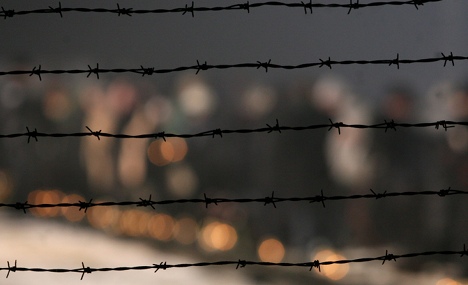Bikers are now so scared that someone might end up decapitated that they are avoiding the popular former open cast mine, long a haven for motocross riders.
The barbed wire attacks – which were supplemented by several nail bed traps laid for bikers – at first went unreported because the motocross riders were not supposed to be at the former mine near Senftenberg.
But last year one biker was caught across the throat by a string of barbed wire tied between two trees. His injuries were so life-threatening that he had to be flown by helicopter to hospital.
Fellow bikers decided to take the risk of outing themselves as trespassers on the land – and reported the cases.
“This spring the cases increased so much that we went to the police,” said Atilla Damm from the MCS Hörlitz bike club.
He said the former open cast mine area at Meuro was very popular with bikers and quad riders – particularly after the closure of the club’s own motocross track. He said he was personally thrown from his bike three years ago after hitting a nail bed trap in the former mine.
Cottbus public prosecutor Horst Nothbaum said the investigation was looking at potential grievous bodily harm charges, and was questioning many witnesses as well as those bikers concerned – although only about the attacks, not any trespass issue.
The former mine has been a draw for bikers from the region and beyond for nearly a decade, despite warnings of possible landslips from the company in charge of clearing it up.
DAPD/The Local/mdm



 Please whitelist us to continue reading.
Please whitelist us to continue reading.
Member comments